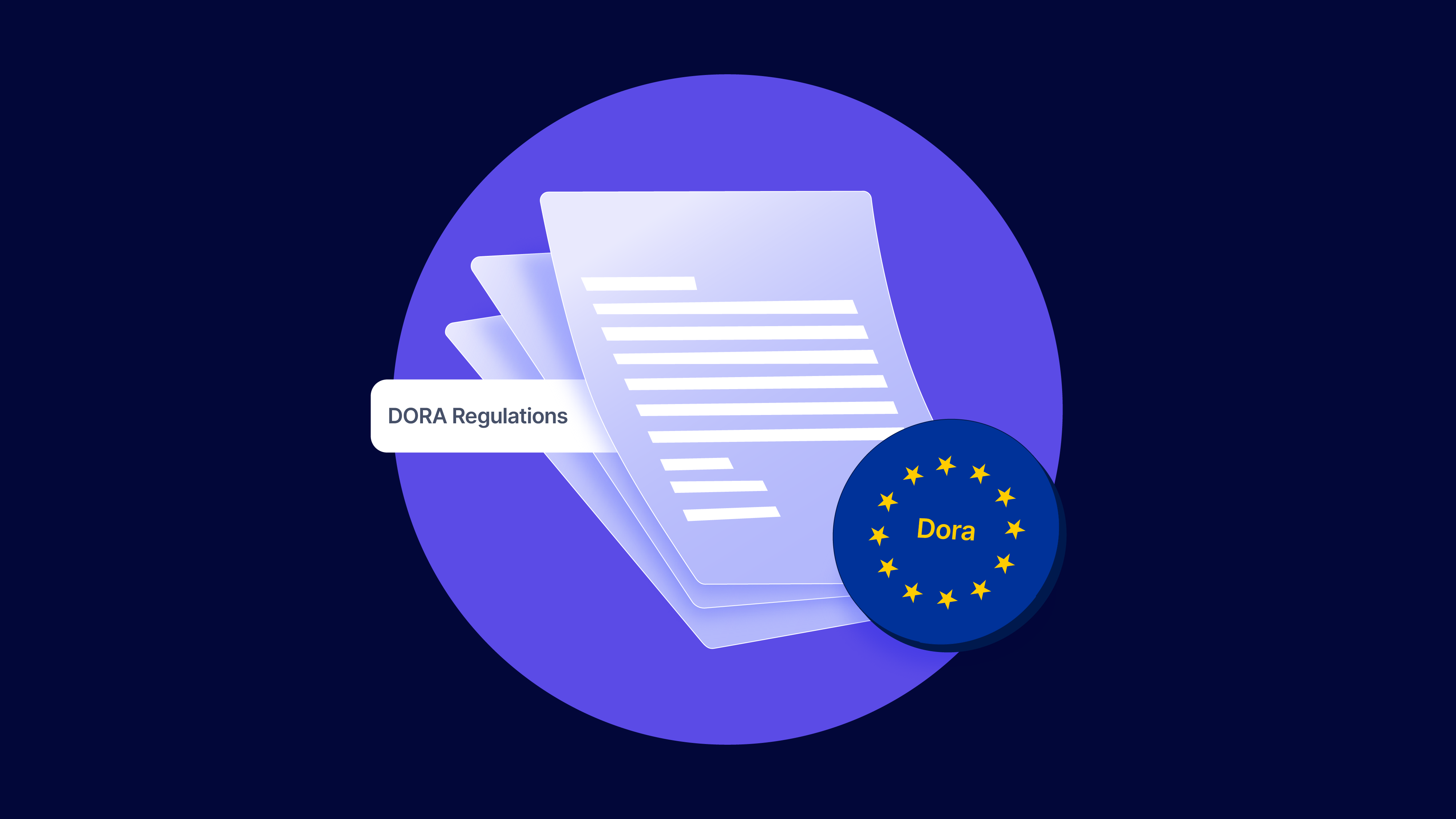
Accept crypto with CoinGate
Accept crypto with confidence using everything you need in one platform.
The Impact of DORA Regulations: All You Need to Know

The financial world becomes increasingly reliant on digital infrastructure, which is why maintaining operational resilience is crucial for businesses, particularly in high-risk sectors like cryptocurrency.
The Digital Operational Resilience Act (DORA) was created to ensure that all financial entities operating in the EU, regardless of their size, are prepared to handle various digital risks. These risks include cyberattacks, system failures, and any operational disruptions caused by technology. The act is part of the EU’s broader efforts to strengthen the financial sector’s resilience in the face of increasingly sophisticated digital threats.
With DORA set to take effect on January 17, 2025, businesses must understand its requirements and potential impact on the broader crypto industry.
This guide explores how DORA will affect companies providing crypto payment services, the industry at large, and what organizations need to know to ensure compliance. You can also learn more about MiCA – another crucial regulatory framework.
What is DORA Regulation, Explained
DORA aims to ensure that companies in the financial sector can maintain operations even in the event of severe IT disruptions, such as cyberattacks, data breaches, or system failures. This regulation applies to a broad range of financial institutions, including:
- Traditional Financial Institutions: Banks, investment firms, insurance companies, and other traditional financial entities are required to adopt stringent digital risk management practices. They must ensure they can continue offering services even in the face of cyber threats or IT disruptions.
- FinTech and Crypto: DORA explicitly includes cryptocurrency businesses, payment processors, exchanges, and other crypto-related services. As part of this, we need to ensure that our digital infrastructure is secure, regularly tested, and ready to deal with potential digital threats. This also applies to third-party service providers that we rely on, like cloud services or other technology providers.
- Third-Party IT Service Providers: DORA expands its scope to include those providing critical technology services to financial entities. These include cloud providers, data analytics services, and other IT infrastructure companies. They must comply with the same high standards of operational resilience as financial institutions themselves.
DORA sets out requirements for risk management, incident reporting, testing of operational resilience, and oversight of third-party ICT providers.
How Will It Impact Companies That Provide Crypto Payment Processing Services Like CoinGate?
For companies providing crypto payment processing services, DORA will have a significant impact, especially in terms of compliance with operational resilience standards. Companies like CoinGate, for example, will need to:
- Implement robust cybersecurity measures to protect their systems against breaches and attacks.
- Strengthen risk management processes to ensure they can detect, handle, and recover from potential disruptions.
- Perform regular testing of their operational resilience, ensuring they can withstand IT disruptions without impacting services.
- Monitor and manage third-party providers, especially those involved in handling IT services or cloud infrastructure. This means crypto payment processors will be held accountable not only for their own systems but also for the resilience of their service providers.
- Incident reporting: They will need to have clear procedures in place for reporting incidents to regulatory authorities.
This means that companies offering crypto payment services must dedicate resources to ensure they meet these new regulatory demands, which could lead to operational changes and additional costs.
What Should Companies Know About DORA if They Accept Crypto Payments?
Companies that accept crypto payments should be aware of several key aspects of DORA:
- Outsourcing and Third-party risk management: They need to monitor the digital operational resilience of third-party service providers they rely on for crypto payment processing. DORA places a strong emphasis on managing risks posed by third parties.
- Incident reporting: Companies will be required to report any major operational or security incidents to relevant authorities. This means establishing clear and efficient incident reporting protocols.
- Compliance audits: DORA may require firms to regularly audit their systems and processes to ensure they meet resilience requirements.
- Data protection: Companies will need to ensure that customer data remains secure, especially during disruptive events.
Being prepared in advance will help these companies avoid potential fines or penalties and ensure smooth operations even during IT disruptions.
How DORA Benefits Individuals Paying with Cryptocurrency
For individuals paying with cryptocurrency for products and services, or using crypto payment gateways, DORA introduces several key benefits that will enhance the security and reliability of their transactions. As crypto payment processors strengthen their operational resilience, customers will experience safer transactions, better protection against cyber threats, and reduced chances of service outages.
DORA’s regulations ensure that payment gateways implement advanced cybersecurity measures and regularly test their systems to prevent IT failures or disruptions. This means individuals can make crypto payments with greater peace of mind, knowing their transactions are less likely to be impacted by downtime or security issues.
Additionally, DORA mandates that companies quickly report and address any incidents, such as breaches or operational failures, ensuring prompt resolution with minimal inconvenience to users. This increased transparency and responsiveness will foster greater trust in the use of crypto as a payment method.
Finally, as DORA applies to companies operating within the EU, even crypto payment processors outside the EU that serve EU customers will need to comply. This guarantees a consistent level of security and protection for users across borders, making crypto payments more trustworthy for cross-border transactions.
In short, for those using crypto to pay for goods and services, DORA brings added confidence and security, ensuring a smoother and more reliable experience when transacting digitally.
How Will It Impact the Broader Crypto Industry?
The broader crypto industry will likely experience both challenges and opportunities as a result of DORA. On one hand, crypto companies will need to invest in stronger security infrastructure, which may increase compliance costs, especially for smaller players. On the other hand, DORA will foster trust in the crypto industry, as regulatory oversight and improved resilience can help reduce the risk of system failures or cyber threats.
- Increased credibility: As the industry becomes more regulated, it could gain more credibility with traditional financial institutions and retail users.
- Barriers to entry: For smaller crypto firms, the compliance costs may act as a barrier to entry.
- Innovation pressure: The industry may also see increased pressure to innovate around cybersecurity solutions and resilience protocols.
What Else Is Important to Know About DORA for the Crypto Industry?
- Applicability: DORA applies to any company offering financial services in the EU, which includes cryptocurrency service providers. This means that even if your company is based outside the EU but serves EU customers, you may still be required to comply with DORA.
- Supervision: Under DORA, supervisory authorities will have more power to scrutinize how companies manage their digital risks. They will assess if crypto companies have the appropriate cybersecurity measures, testing, and governance frameworks in place.
- Future-proofing: DORA sets a framework that adapts to the evolving digital landscape, meaning it’s not just about complying with current standards but preparing for future risks and threats.
DORA will demand significant operational focus on resilience and cybersecurity for crypto payment processors and the wider industry. Companies need to be proactive in adapting to these changes to thrive in a more regulated and secure financial ecosystem.
Accept crypto with CoinGate
Accept crypto with confidence using everything you need in one platform.

